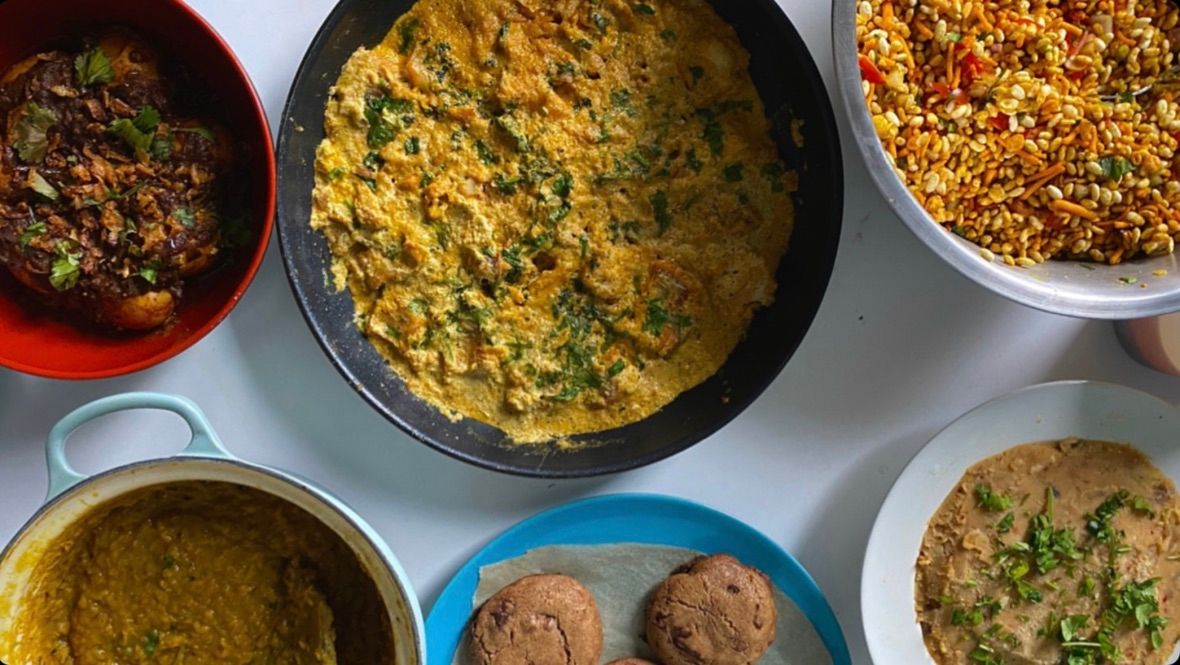By Saiba Haque, Food Editor.
The Croft Magazine// Bengali New Year, or what we would refer to as Pohela Boishakh, seems like it's often underrepresented and overlooked as a celebration. Nevertheless, it is a festivity that is immensely dear to my heart. This celebration has been a huge part of my culture growing up and remains to be one of my favourite celebrations even now. With the busy-ness of University life taking over me, I'm sad to admit that I haven't properly had the chance to celebrate this occasion during my time here. So this year I decided to bite the bullet and host a humble celebration for this occasion in my university accommodation.
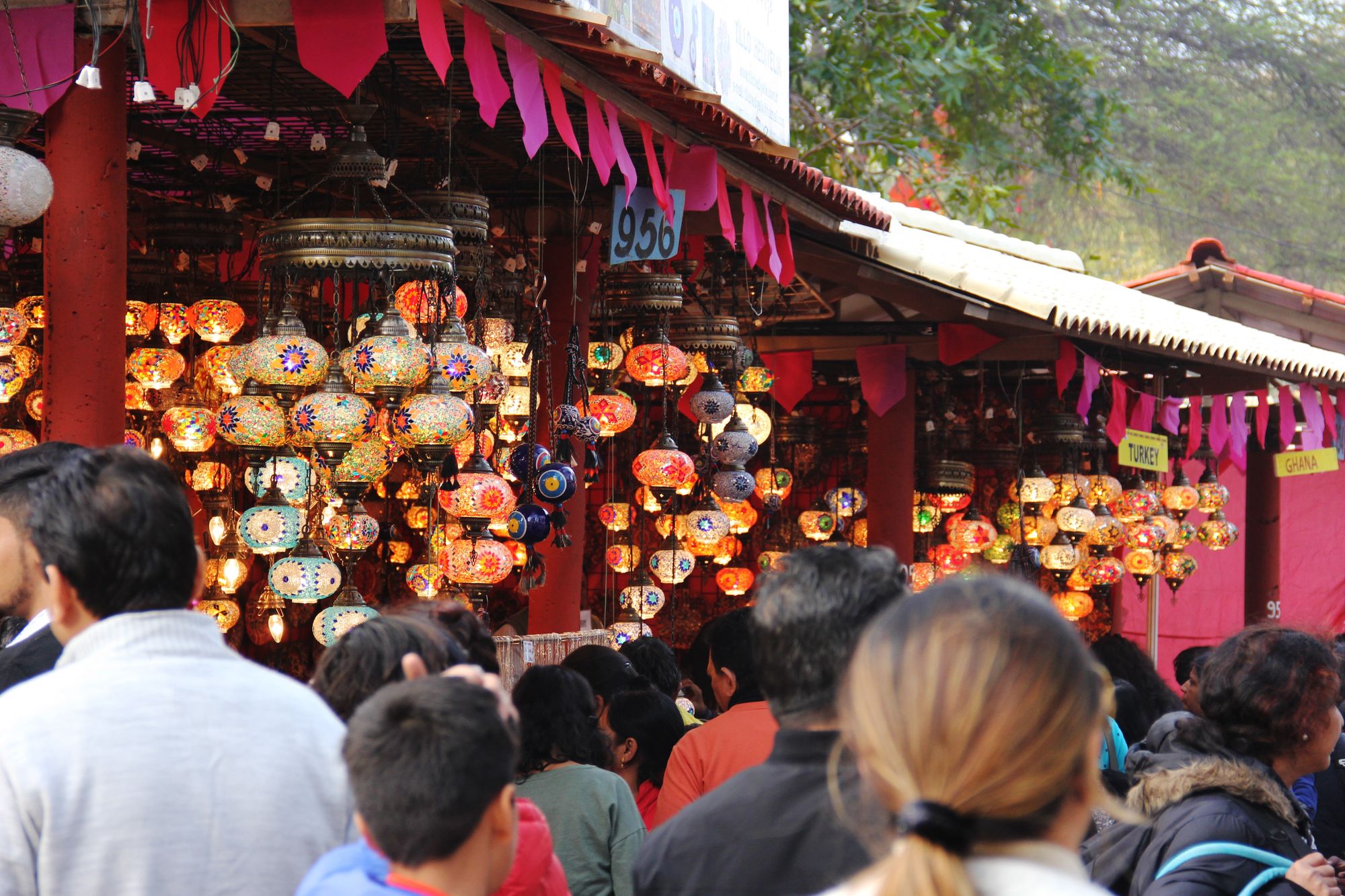
Before I go into my day of celebration, here's a synopsis. Bengali New Year (Pohela Boishakh) falls annually on the 14th or 15th of April, which is the first day of the year in the Bengali Calendar. In Bengali Year, this year will be 1430 (English calendar 2023-2024). The official greeting for this occasion is 'Shubho Noboborsho', which translates to Happy New Year. Usually the attire consists of colours such as red and white (and sometimes yellow). The occasion is celebrated not only by Bengalis in West Bengal but also by Bengalis in Bangladesh (where I'm from). For the Hindu population celebrating the occasion, they start their day with a visit to their temple to conduct Puja (Prayer), and then having a traditional meal with their loved ones. For the celebration in Bangladesh, It is observed as a public holiday there, and Bangladeshis celebrate the festival by preparing traditional foods and singing Rabindranath Tagore’s famous song, ‘Esho Hey Boishakh, Esho Esho’.
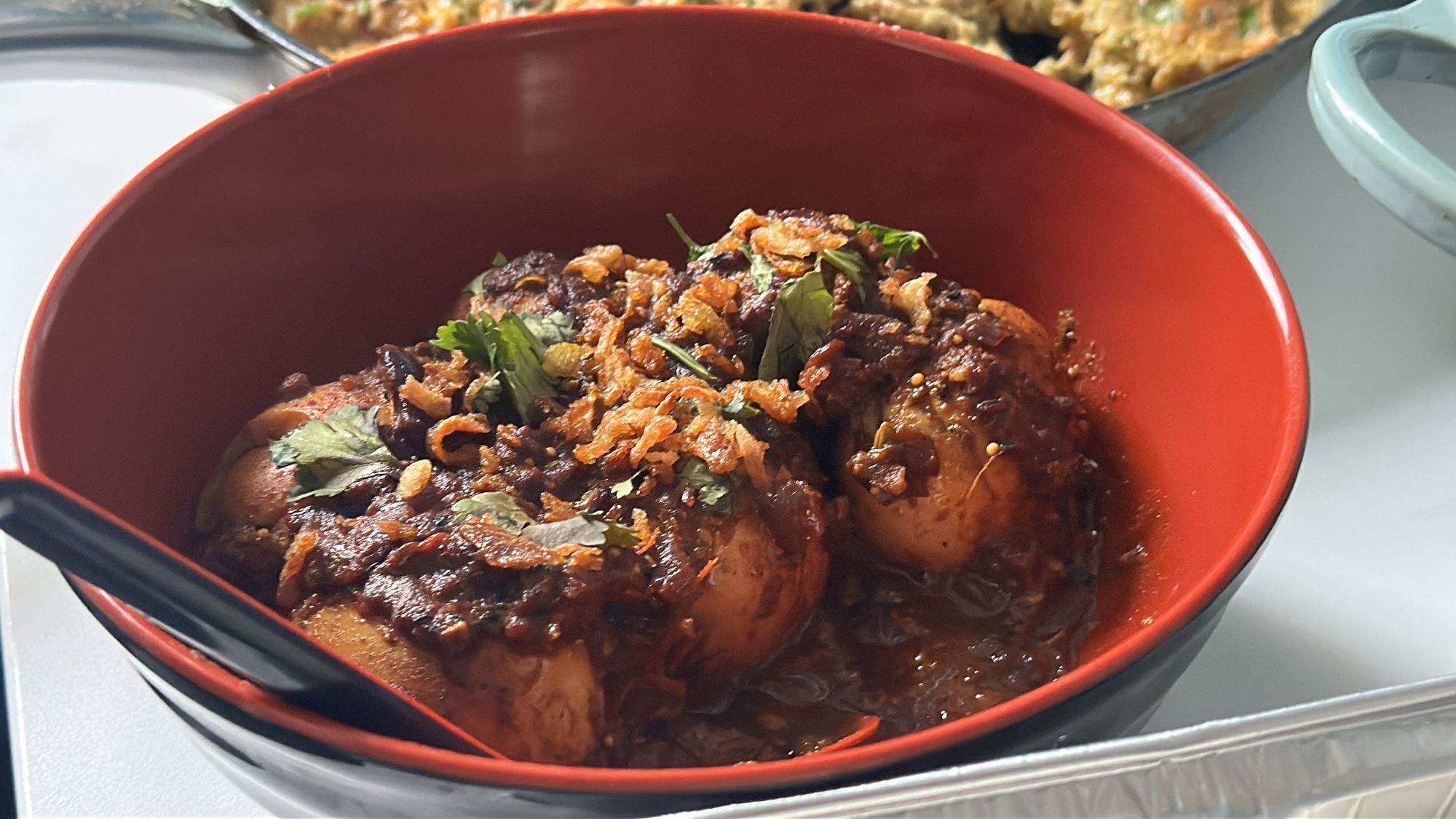

Aside from the blessings of the elder members in my family and spending time with friends and relatives, a huge part of the festivities consisted of the amazingly delectable food. We would have our brunch together with all our traditional foods and then afterwards head to a Mela (fair/carnival) together to run into our friends. The new year fair is very colourful and vibrant; taking place outdoors with numerous stalls filled with the finest craftmanship made regionally, along with decorations, rides and most importantly, food stalls. The street foods from the fair remains to be one of the most memorable parts about this festival (to me at least).
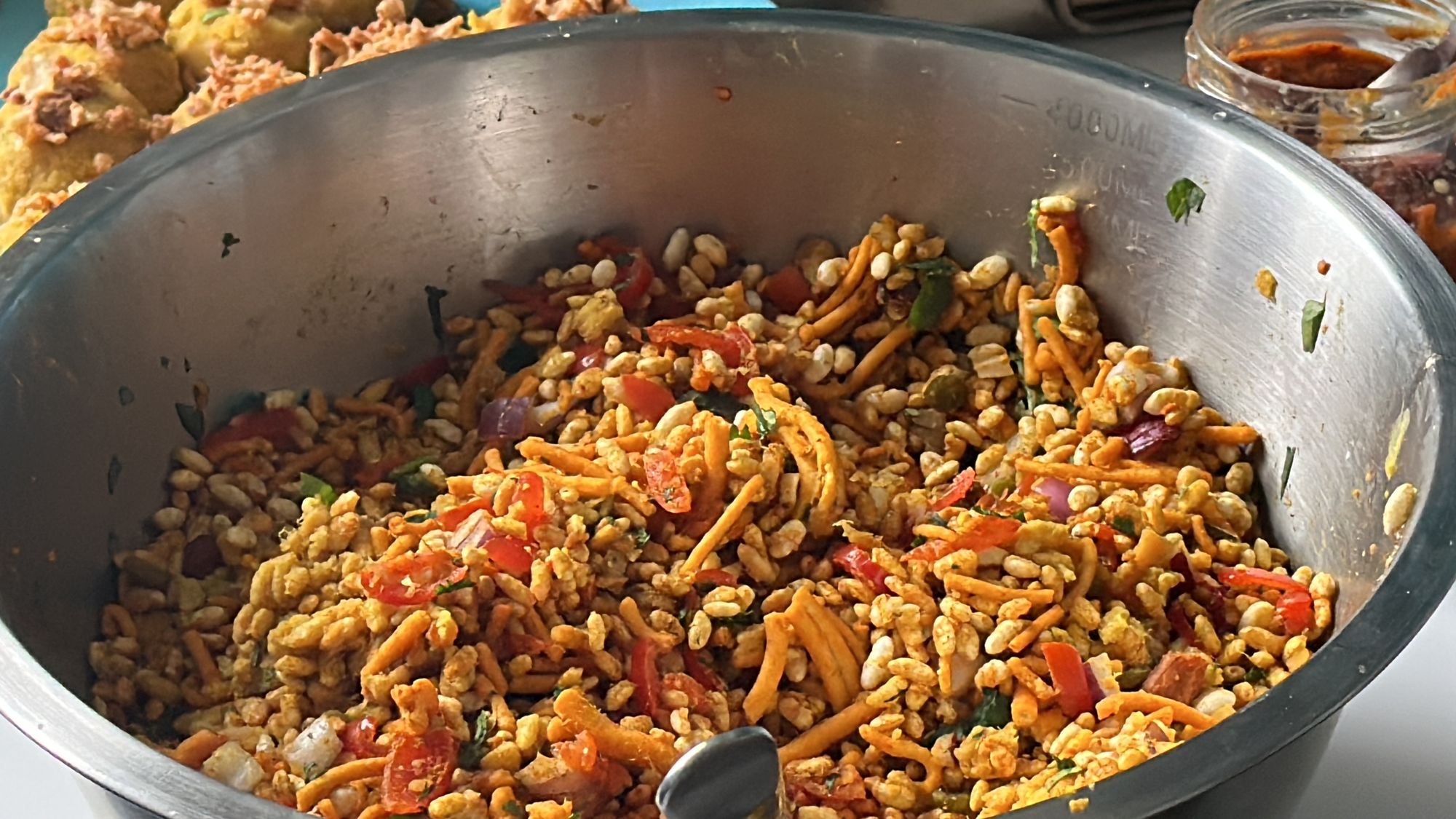
As I am stuck in University during deadline season and with the lingering feeling of nostalgia taking over me, I decided for this year to actually put in more effort to celebrate Bengali New Year the best way that I can: through food. I decided to dedicate a day to whip up a feast of some of the more prominent dishes that I would eat if I were celebrating in Bangladesh, with whatever limited resources were available to me. I had to scour the internet for a variety of online grocery stores to stock up on a few ingredients that I didn't have, as it was hard for me to find a Bengali grocery store near me.
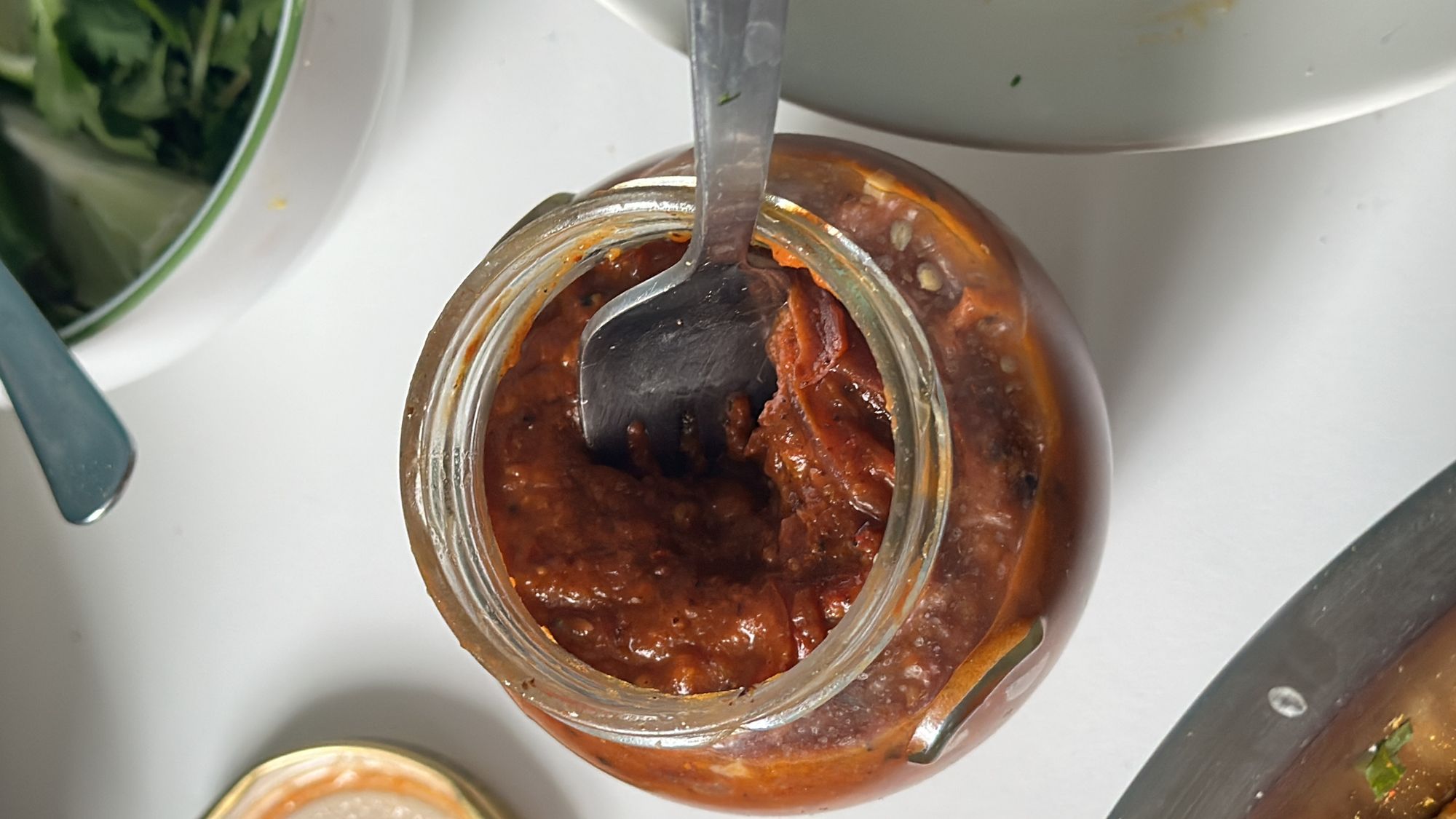

Moreover, a celebration seems pointless without the company of loved ones. So I went ahead and invited some close and new friends of mine to celebrate this occasion with. I felt very fortunate that everyone was so excited to experience this part of my culture through food!
So I went ahead and started prep on a few dishes the night before. I made sure to marinate my beef with a myriad of spices the night before, so that in the morning I can make Kala Bhuna which one would call Blackened (tender) Beef. I also made the spicy tomato and onion chutney, the spicy mashed Daal (Daaler Bhorta) and the spicy mashed potato (Aloo Borta) the night before, so that it was out of the way.
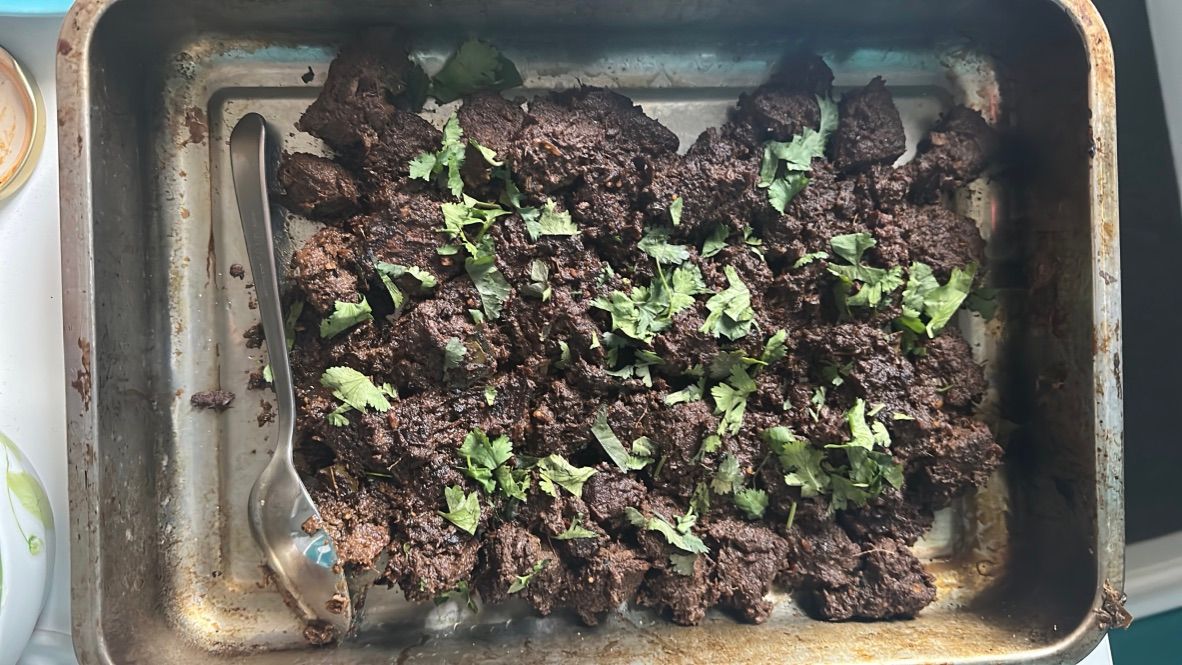
The next day, one of my friends (Nadia) came over early to help me with the rest of the cooking. We started with the beef right away as it required slow cooking. We also made the Shorishe Maach (mustard fish curry) which was the easiest to prepare. We made some simple yellow daal (an old family recipe that I recall dearly), some plain white rice, some chocolate chip cookies for a simple dessert, and upon searching the grocery store for the third time that week I was fortunate to be able to find some eggs, so we also made some Deem Bhuna (egg curry).
I also wanted to make two of my favourite street foods: Jhal Muri (spicy puffed rice ) and Fuchka (crispy round shells filled with chickpea and potatoes, served with flavourful tamarind water sauce). Throughout South Asia, Fuchka can also be called Pani Puri or Golgappe; the recipe is mostly the same with minor differences setting them apart.
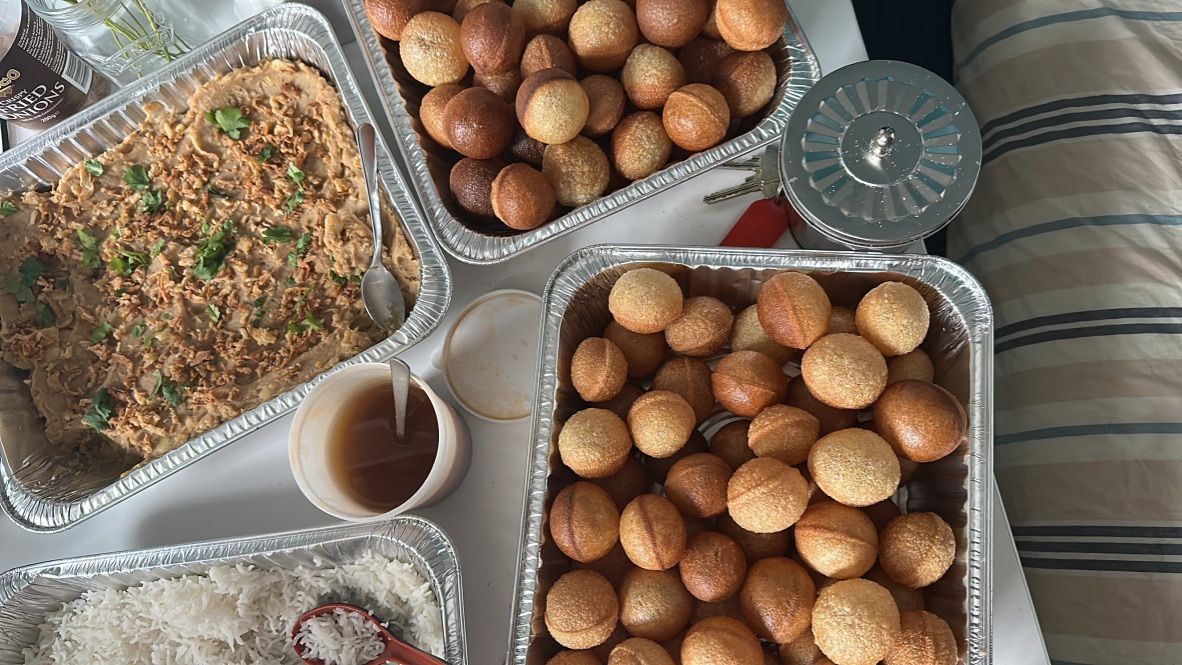
Upon the preparation coming to an end, and the time of the arrival of guests approaching closer, I decided to change my attire to my traditional clothing and set up the table. I decided to clear my study table in my dorm room and lay out the feast there like a buffet. If you want to host a feast for a occasion similar to this please do yourself a favour and get some disposable paper plates and wooden/bamboo cutlery. It will make cleanup so much easier!
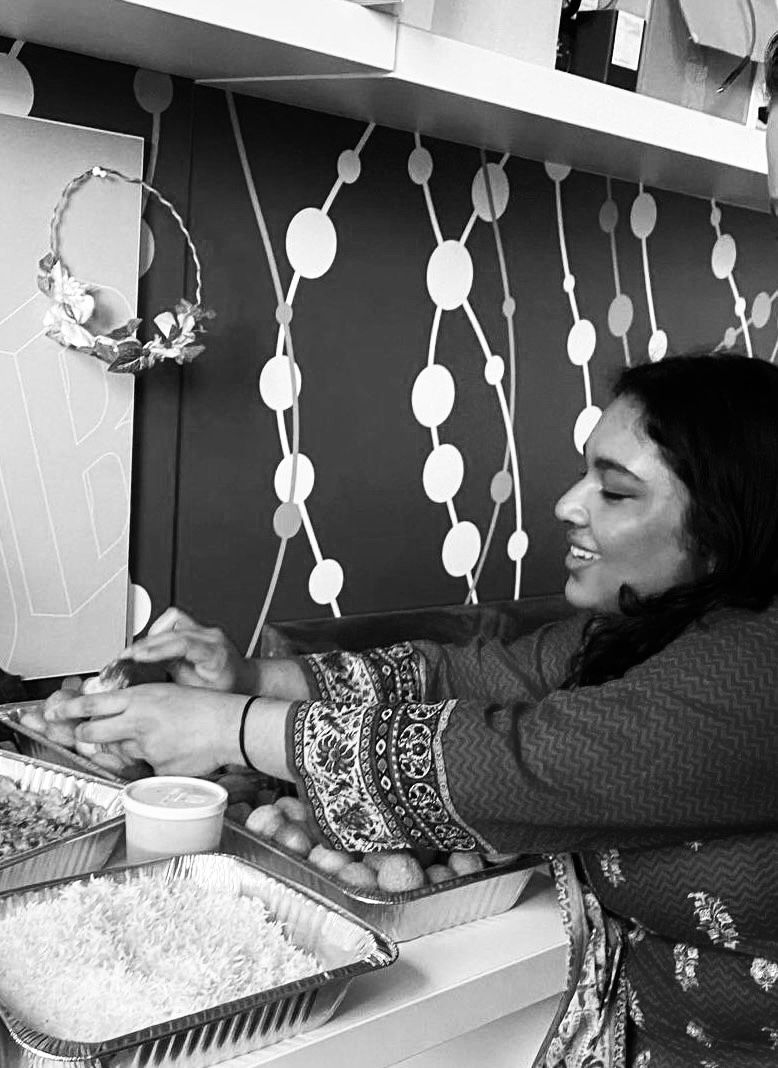
I feel like celebrating this festivity at University during the peak of dissertation season has been a very bittersweet experience. It takes a lot of self-convincing to go and actively celebrate such a wonderful day in such a stressful environment. I was not able to go to a Mela, as the closest one was being held in Swindon.
Although I tried my best to host as accurately as I can, it was near impossible to make some of the other traditional dishes mostly due to how inaccessible the ingredients are and how little time I had. Nevertheless, I adapted to what I can find near me and worked with the limited time that I gave myself to make this happen.
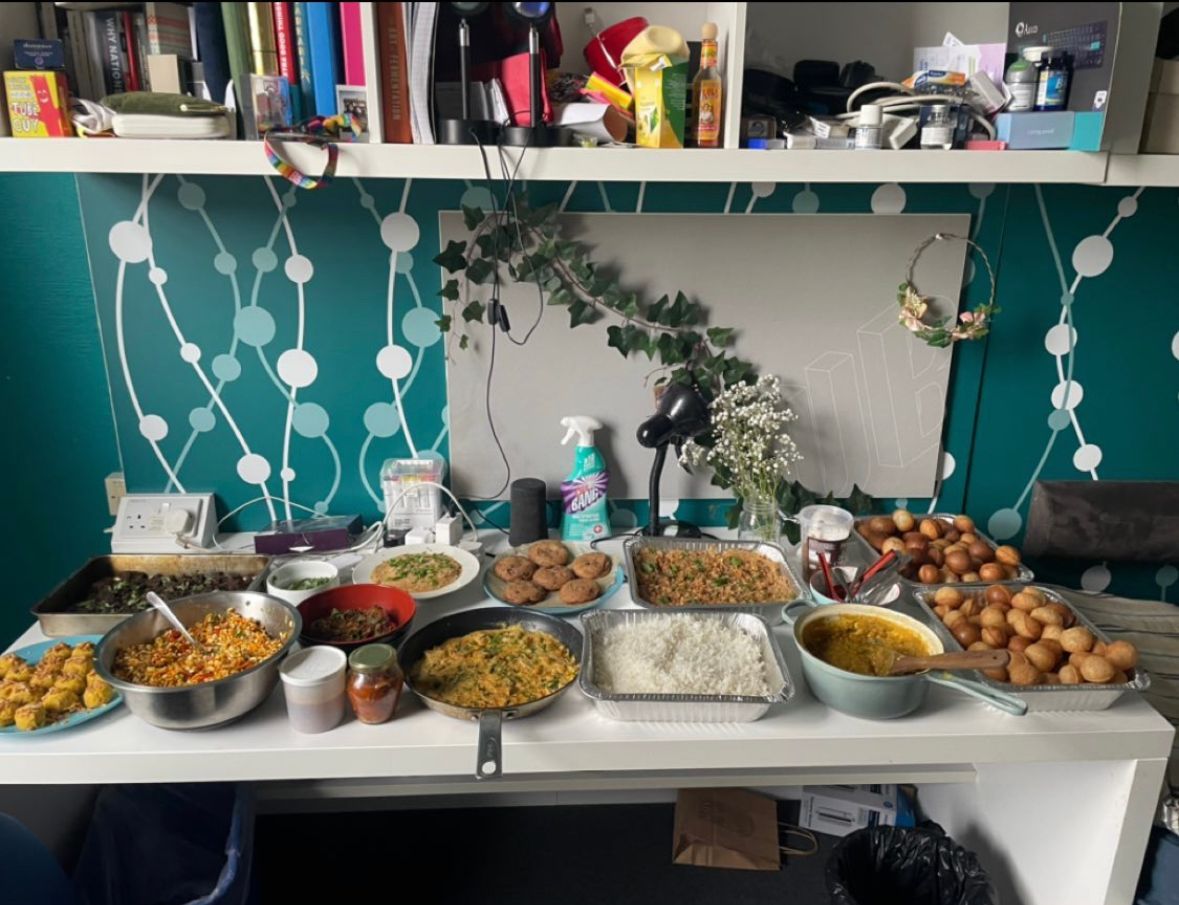
I was absolutely delighted to know that my friends really enjoyed the food and the occasion! To me that's what made this whole experience truly special. Being able to share my culture with my friends at university and bonding over delicious food. I would say that by choosing to celebrate this occasion,I brought a little taste of Bangladesh here with me to Bristol.
Shubho Noboborsho! (Happy New Year).
Featured Image by Lauren Sanderson
How do you celebrate New Year?

